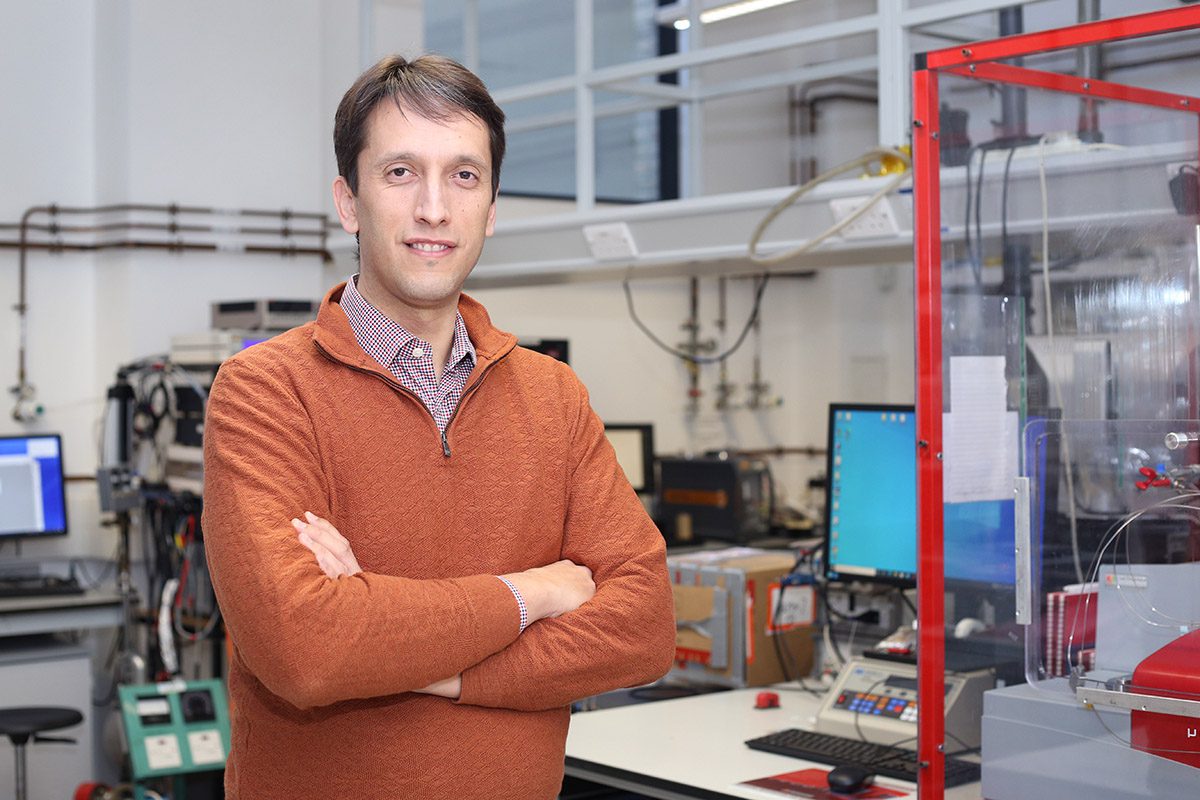
“Zero-carbon refrigeration” developer Barocal has secured a £1.3m investment to accelerate commercialisation of its technology, which also works in heating applications.
The University of Cambridge spin-out says it now plans to explore the potential of its breakthrough for domestic and commercial heating systems – to provide a cost-effective, efficient alternative to expensive air source heat pumps.
Instead of using refrigerant gases with high global warming potential (GWP), Barocal’s technology uses new solid-state, temperature-changing materials. Said to be cheap and non-toxic, they are organic materials that release and absorb heat at different pressures as they change volume. Known as barocaloric materials, they are more efficient than fluid refrigerants. And, as they are solids, they are more environmentally friendly and easier to recycle at the end of a product’s lifetime.
“Heating and cooling accounts for 38% of the UK’s CO₂ emissions,” said Dr Xavier Moya, who co-founded Barocal based on his research in the Department of Materials Science and Metallurgy at the University of Cambridge. “So the government’s commitment to a 78% cut in carbon emissions by 2035 means there is a growing need for new low-carbon domestic heating systems.
“Current alternatives, such as hydrogen boilers and traditional heat pumps, are expensive and not practical for many homes. Barocal’s revolutionary new heat pump, based on non-vapour compression technology, holds the promise of a cost-effective, efficient and environmentally friendly solution for domestic and commercial heating systems as well as air conditioning and refrigeration.”
The £1.3m investment in Barocal was led by IP Group, which focuses on funding innovations to address some of the world’s most pressing challenges. “Barocal is perfectly aligned with our mission to generate positive social and environmental impact by helping to evolve great ideas into world-changing businesses,” said IP Group investment director Eva Kirkby Leary.
Cambridge Enterprise, the commercialisation arm of the University of Cambridge, has also participated in the funding as part of a new sustainability initiative. Over the next four years, it aims to support at least 15 of the university’s spin-outs and start-ups working on technology that will rapidly cut emissions of global warming gases. “Barocal is the latest example of our early investments in transformative sustainable technologies,” said Cambridge Enterprise investment manager Chris Gibbs. “Our mission is to support entrepreneurs and academics with the potential to disrupt industries for the benefit of society and the planet.”
Through its sustainability initiative, Cambridge Enterprise recently joined in a £1 million investment in Carbon Re, a climate tech start-up that is using artificial intelligence to cut CO₂ emissions in the global cement industry and other energy-intensive sectors.
In 2019, Barocal was the sole European finalist in the Global Cooling Prize – an international innovation competition designed to stimulate invention and production of super-efficient and climate-friendly residential cooling solutions. Established by a coalition led by the Government of India along with the Rocky Mountain Institute (RMI), the competition attracted 139 teams from 31 countries.
The work on the technology began as a joint project between the Department of Materials and Metallurgy at the University of Cambridge, the Polytechnic University of Catalonia and the University of Barcelona. Barocal has a licence for the technology from Cambridge Enterprise.







